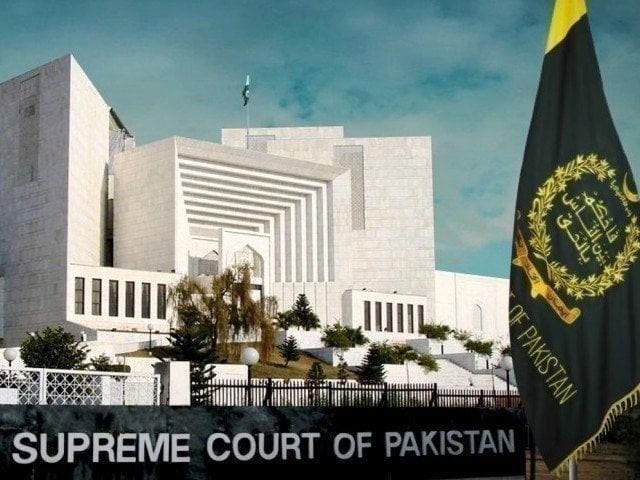'Judges' transfer cleared by 4 judicial forums'
CB says law secretary's clarification raises concerns

Justice Muhammad Ali Mazhar on Monday raised questions over the claim that transfer of three provincial high court judges to the Islamabad High Court (IHC) was interference on part of the executive in judicial affairs, noting that every transfer was made after approval of four different judges.
However, some members of the constitutional bench (CB) of the Supreme Court, hearing petitions filed against the transfer and the subsequent change in the IHC judges' seniority list, stated the executive did keep the chief justicesof Pakistan and respective high courtsin dark about the seniority issue. On Monday, a five-member CB led by Justice Mazhar, heard the judges' transfer case.
During the hearing, Karachi Bar's lawyer Faisal Siddiqi argued that the IHC was established under Article 175 of the Constitution, which pertains only to the provinces regarding the appointment of judges.
He said judges cannot be transferred to the IHC, and even if a transfer does occur, it cannot be permanent nor would a fresh oath be required upon return of that judge to his original high court. Justice Mazhar asked whether Article 200 has become ineffective after the enforcement of Article 175-A. Siddiqi responded that under the current transfer system, the powers of the Judicial Commission of Pakistan (JCP) are being undermined, which is against the spirit of the Constitution.
Siddiqi stated that seniority develops over decades and tampering with it overnight through executive powers is an authoritarian move.
Justice Mazhar noted that the transfer process involves approvals at four stages: the approval of the chief justice of the concerned high court, the approval of the chief justice of the receiving high court, the approval of the judge being transferred, and the approval of the chief justice of Pakistan.
"If any one of them refuses, the transfer cannot proceed. If the process were in the hands of the executive, it would be a different matter, but here it requires the approval of four judicial forums."
Siddiqi told the court that the transfer was made with bad faith and that the judiciary was kept in the dark about the sensitive issue of seniority.
Attorney-General for Pakistan (AGP) Mansoor Awan argued that under Article 200, the transfer of judges can be permanent or temporary. A temporary transfer is mentioned in the notification and comes with additional benefits, while a permanent transfer entitles the judge to official residence.
Justice Shakeel Ahmed questioned whether the oath and seniority of judges are to be decided by the law secretary. He asked whether anyone had sought the law secretary's opinion on the matter. "Why did the law secretary include clarifications on seniority and oath in the final summary?
He remarked that the need for the law secretary to clarify that transferred judges do not need to take a new oath raises concerns. The Supreme Court then adjourned the hearing until today (Tuesday).



1619294565-29/Kalash-(27)1619294565-29-208x130.webp)















COMMENTS
Comments are moderated and generally will be posted if they are on-topic and not abusive.
For more information, please see our Comments FAQ